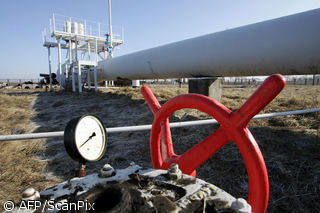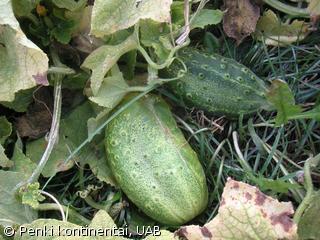Russia and its neighbors may boost crude oil shipments through an Israeli pipeline, helping them compete against Persian Gulf nations for sales in Asia
Published:
3 November 2003 y., Monday
The 254-kilometer Eilat-Ashkelon pipeline, which has flowed from the Red Sea to the Mediterranean for more than 30 years, will reverse direction for a second time in November. A tanker is set to leave the Red Sea port of Eilat, bound for Asia, with oil sent from Ashkelon on the Mediterranean.
Russia wants to sell more oil in Asia, where demand is growing faster than in Europe, as China and Japan seek to reduce their dependence on Middle East exports. The pipeline gives oil companies an alternative to the longer route around Africa and lets them avoid restrictions in Egypt's Suez Canal.
How much crude will be exported across Israel will depend on the so-called arbitrage window, when Russian oil prices are low enough to attract Asian buyers. The pipeline may make Russian crude oil, which costs about four times as much to produce as Middle Eastern grades, more competitive by reducing transport distances and costs.
Very large crude carriers, or VLCCs, which can carry about 2 million barrels of oil, take 10 days to travel from the Red Sea to Asia compared with 30 to 35 days from the Mediterranean.
A tanker is scheduled to unload about 2 million barrels of Russian Urals and Kazakh Tengiz crude at Ashkelon in the second half of November, shipbrokers said.
Šaltinis:
Bloomberg
Copying, publishing, announcing any information from the News.lt portal without written permission of News.lt editorial office is prohibited.
The most popular articles
 One of the biggest Finnish introducing broker companies Finnprinters, connecting customers and printing houses, has started joint business projects with Lithuania’s 2 printing houses.
more »
One of the biggest Finnish introducing broker companies Finnprinters, connecting customers and printing houses, has started joint business projects with Lithuania’s 2 printing houses.
more »
 Statistics Lithuania informs that, based on the Labour Force Survey (LFS) data, the unemployment rate in I quarter 2009 reached 11.9 per cent, i.e. was close to the level of the year 2004. Over a quarter, the unemployment rate grew 1.5 times, over a year – 2.4 times.
more »
Statistics Lithuania informs that, based on the Labour Force Survey (LFS) data, the unemployment rate in I quarter 2009 reached 11.9 per cent, i.e. was close to the level of the year 2004. Over a quarter, the unemployment rate grew 1.5 times, over a year – 2.4 times.
more »
 Lithuania’s Acting Minister of Foreign Affairs Vygaudas Ušackas discussed ways of accelerating the implementation of Rail Baltica in the current economic environment and attracting foreign investments for the implementation of this project.
more »
Lithuania’s Acting Minister of Foreign Affairs Vygaudas Ušackas discussed ways of accelerating the implementation of Rail Baltica in the current economic environment and attracting foreign investments for the implementation of this project.
more »
 Proposals for transparency and monitoring to keep gas flowing to the EU.
more »
Proposals for transparency and monitoring to keep gas flowing to the EU.
more »
 On a day in which G8 leaders in Italy said the world economy still faces "significant risks," a top White House official said the Obama administration is not discussing a second stimulus plan.
more »
On a day in which G8 leaders in Italy said the world economy still faces "significant risks," a top White House official said the Obama administration is not discussing a second stimulus plan.
more »
 EU proposes microfinance facility to encourage the unemployed to start their own businesses.
more »
EU proposes microfinance facility to encourage the unemployed to start their own businesses.
more »
 For those of you who like your fruit and vegetables to look as crooked, knobbly and curvy as possible 1 July was a good day.
more »
For those of you who like your fruit and vegetables to look as crooked, knobbly and curvy as possible 1 July was a good day.
more »
 Walt Disney will invest almost half a billion U.S. dollars into its Hong Kong Disneyland, to bolster the park's prospects against a planned rival in Shanghai.
more »
Walt Disney will invest almost half a billion U.S. dollars into its Hong Kong Disneyland, to bolster the park's prospects against a planned rival in Shanghai.
more »
 On 26 June 2009 Securities Commission (SC) approved the merge of investment funds controlled by UAB SNORAS Asset Management with SNORAS Global Equity Funds of Funds (SGEFF) by joining JT Baltic Equity Fund I.
more »
On 26 June 2009 Securities Commission (SC) approved the merge of investment funds controlled by UAB SNORAS Asset Management with SNORAS Global Equity Funds of Funds (SGEFF) by joining JT Baltic Equity Fund I.
more »
 Taking into account changes on international and domestic money markets AB DnB NORD Bankas, a member of international financial group, has changed time deposit rates for individual customers.
more »
Taking into account changes on international and domestic money markets AB DnB NORD Bankas, a member of international financial group, has changed time deposit rates for individual customers.
more »